The Clothesline Project is a display to increase awareness of the impact of violence and abuse. Survivors share their stories on t-shirts, hung on a clothesline, to reflect, process, heal, educate and inspire others to break the silence.

- Bears witness to the survivors and victims of sexual violence.
- Challenges stereotypes about “victims.”
- Breaks the silence surrounding abuse and violence.
- Facilitate the healing process for people who are survivors of violence or who have lost a loved one to violence.
- Documents, educates, and raises awareness of the extent of the problem of abuse and violence.
Anyone may create a shirt for the Clothesline Project. Shirts can be designed by survivors, victims, loved ones, and allies. At FGCU, we are aware that women are not the only survivors and victims of violence and invite all members of the FGCU community to participate in this event by selecting a t-shirt color that resonates with them and best reflects their experience.
- Pre-order a t-shirt and attend a shirt making session on campus.
- Pre-order a t-shirt, make it on your own, and drop it off on campus.
- Pre-order a t-shirt, make it on your own, and submit a photo of your shirt that will be displayed in the virtual gallery.
- Make your own t-shirt and submit a photo of your shirt that will displayed in the virtual gallery.
- Submit a request to have someone make a shirt for you that will be displayed in the virtual gallery.
- White: Someone who died because of abuse or violence.
- Yellow: Survivor of physical assault or domestic violence.
- Brown or Gray: Survivors of emotional, spiritual, or verbal abuse.
- Black: Someone assaulted because of a disability or disabled as a result of assault.
- Purple or Lavender: Someone attacked because of their gender and/or sexual orientation.
- Blue or Green: Survivors of incest or child sexual violence.
- Red, Orange, or Pink: Survivor of rape or childhood sexual abuse.
- Allies may choose any color to show support of victims and survivors.
The t-shirts in both the virtual gallery and physical display will not be censored as our goal is to break the silence surrounding violence. Every shirt on display reflects the personal experience of its creator and may contain graphic material including: explicit violent or sexual descriptions, profanity, drug references, or other statements surrounding the trauma the individual faced.
If you allow your children to view the display, we highly encourage you to discuss these issues before and after attending the event or visiting the online gallery.
The Clothesline Project can be triggering for some individuals. Support is available at: CAPS 239-590-7950, ACT 239-939-3112, Project Help 239-262-7227, and The Shelter for Abused Women and Children 239-775-1101.
click here to participate
Instagram Spotlight
Image Gallery: Honoring survivors & their stories
Due to the influx of so many submissions, we will not be able to show the full gallery
at one time and will therefore be rotating out images on Mondays.
We at the Clothesline Project and FGCU thank you for your outpouring of support and
stories of survival. We stand in solidarity with each of you.
Break the Silence.
Image Gallery: Honoring those who died by violence
Share a Reflection
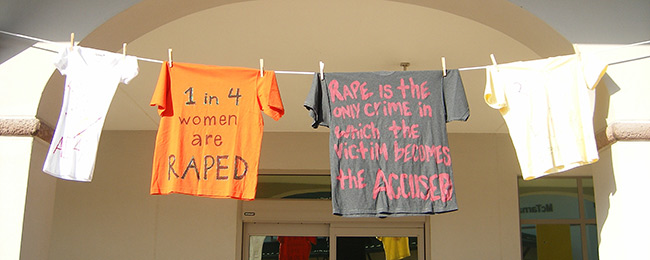
This event is brought to you by the Sociology Program
in conjunction with the following FGCU offices:
College of Arts & Sciences
Office of Prevention and Wellness/ARISE
Department of Social Sciences
Department of Justice Studies
Public Health Program
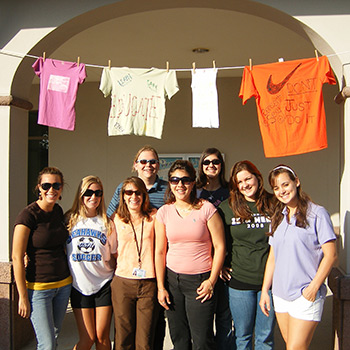
Former FGCU Professor Dr. Kris De Welde with students in a 2014 iteration of the Clothesline Project.
How it started
The Clothesline Project originated in Hyannis, Massachusetts in 1990, by a group of women after hearing that “while 58,000 soldiers died in the Vietnam War, there were 51,000 women killed around the same time by men who claimed to love them.” The statistic motivated the women to organize a program that would speak to and reveal the violence that women experience.
To learn more about the national network, visit the Clothesline Project website.


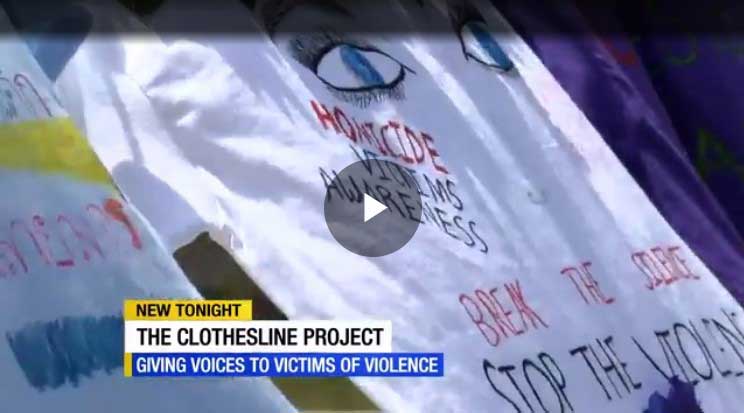
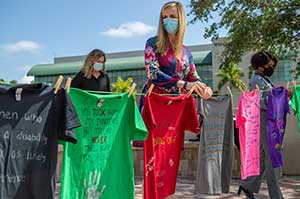
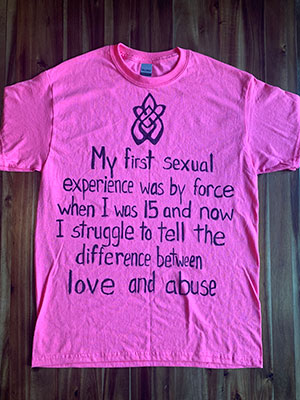
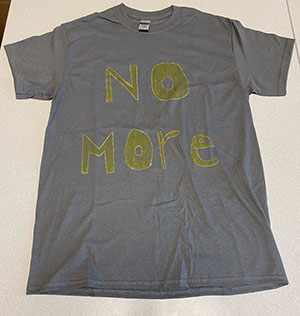
 Les
Les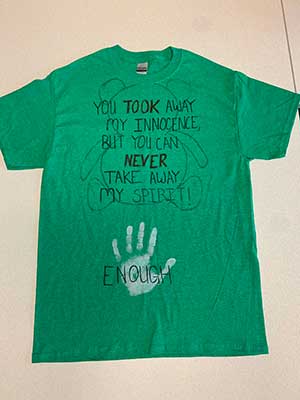 YOU TOOK AWAY
YOU TOOK AWAY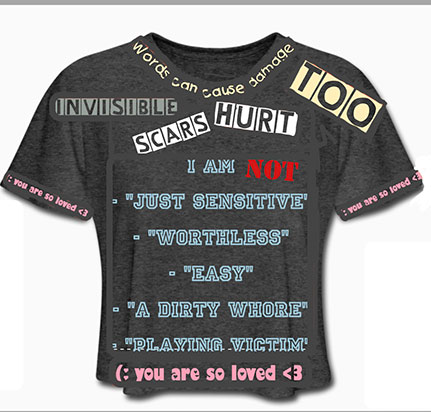

 NO
NO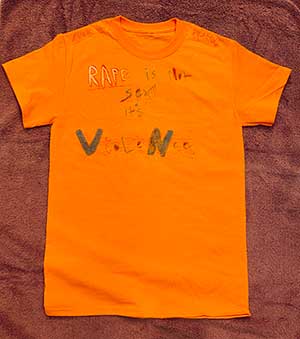










 How about
How about